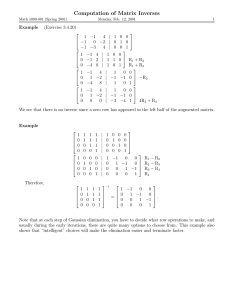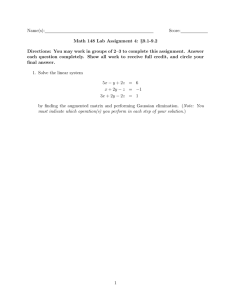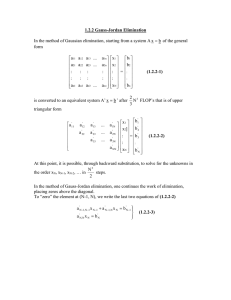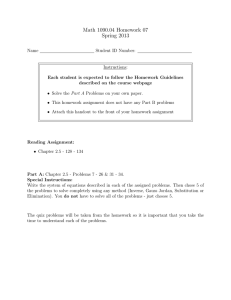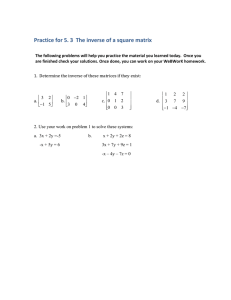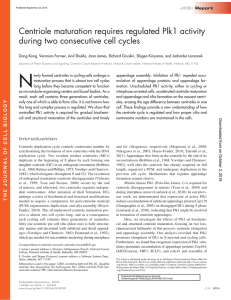Homework 10 Solution:
advertisement
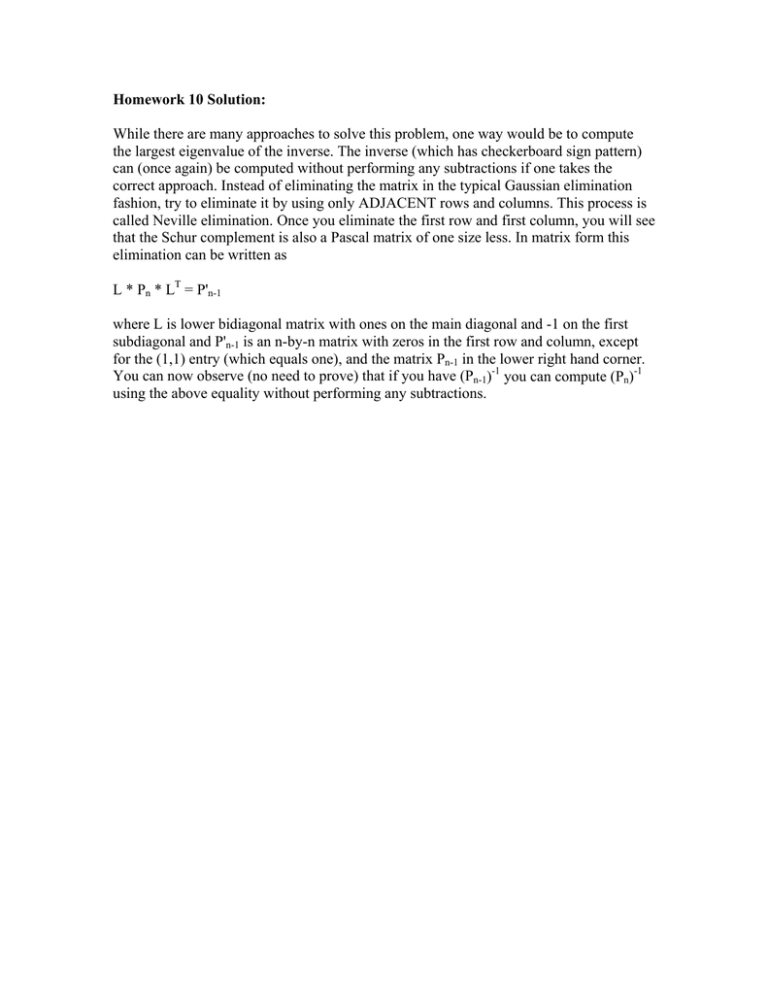
Homework 10 Solution: While there are many approaches to solve this problem, one way would be to compute the largest eigenvalue of the inverse. The inverse (which has checkerboard sign pattern) can (once again) be computed without performing any subtractions if one takes the correct approach. Instead of eliminating the matrix in the typical Gaussian elimination fashion, try to eliminate it by using only ADJACENT rows and columns. This process is called Neville elimination. Once you eliminate the first row and first column, you will see that the Schur complement is also a Pascal matrix of one size less. In matrix form this elimination can be written as L * Pn * LT = P'n-1 where L is lower bidiagonal matrix with ones on the main diagonal and -1 on the first subdiagonal and P'n-1 is an n-by-n matrix with zeros in the first row and column, except for the (1,1) entry (which equals one), and the matrix Pn-1 in the lower right hand corner. You can now observe (no need to prove) that if you have (Pn-1)-1 you can compute (Pn)-1 using the above equality without performing any subtractions.
